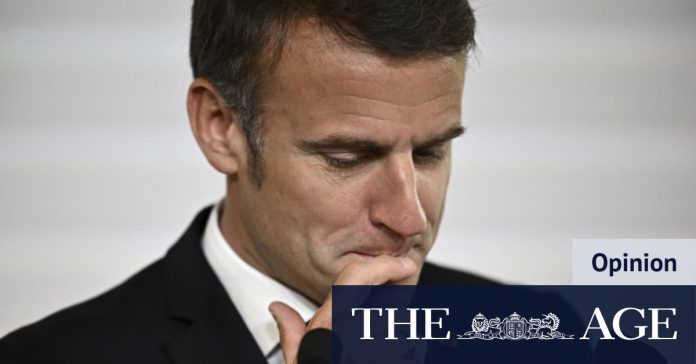[ad_1]
The cost of RN’s spending has been estimated at more than €74 billion a year, with a net cost of €18 billion a year without factoring in the cost of the changes to pensions. France’s annual deficit would rise to about 6.4 per cent of GDP by 2026.
There is no detailed plan for funding the party’s proposed measures.
It is probable […] there would be such a splurge of reckless spending that it could plunge France into a financial and economic crisis.
The leftist grouping has even more expansive plans, also unfunded.
The leftist coalition, the New Popular Front, plans to freeze the prices of fuel, basic foods and energy. It wants to increase the minimum wage by about 15 per cent, increase public sector wages and housing benefits, roll back the retirement age and fund free state school meals and supplies, among other promises.
The New Popular Front says it will pay for the increase in spending – an increase of €150 billion a year by 2027 – with wealth taxes, exit taxes, the abolition of France’s 30 per cent tax on financial income, an inheritance tax and a tax on “super profits,” along with the growth in the economy it says will flow from the increased spending.
Loading
It is probable that, if either of the extremes of the political spectrum were to gain a majority in the national assembly, there would be such a splurge of reckless spending that it could plunge France into a financial and economic crisis.
Its debt would blow out and, as the initial reaction of European bond markets to the announcement of the election signalled, there would be a material increase in the interest costs of France’s sovereign debt that would compound and spread its financial effects throughout the economy.
The impact of France’s debt and deficits has been muted in the past because it has been able to borrow at rates close to those of the most conservative economy in the eurozone, Germany.
The spread between yields on German and French bonds has been widening – about 75 basis points at present – but that could blow out significantly if France abandons all fiscal discipline.
A win for either of the more profligate parties would also entrench France’s defiance of the EU’s fiscal rules, risking European Commission financial sanctions (not that the NR would care about anything the EU might do, given Le Pen’s disdain for the union and the single currency).
In the event of a sovereign debt crisis similar to those seen within the eurozone in the past in Greece, Spain and Portugal, the European Central Bank can now intervene and buy bonds to temper the spike in yields and interest costs, but it would be reluctant to come to France’s aid unless a clear pathway to financial stability was on offer.
The Germans could be counted on to oppose a bailout caused by a spendthrift France, although the single currency and Germany and France’s roles as the biggest economies within the eurozone and the most significant determinants of the euro’s value mean that any significant problems within the French economy become a threat to the stability of the entire eurozone.
Macron’s finance minister Bruno Le Maire has warned that a win by either extremist party could trigger a debt crisis that would lead to an intervention by the International Monetary Fund and/or the European Commission. He has likened the prospect of a bond market reaction to financial recklessness to what happened to cut short the brief tenure of British Prime Minister Liz Truss.
Loading
Truss’s big-spending, unfunded mini-budget in 2022 ignited a bond market meltdown, with yields soaring, and threatened to blow up the entire UK pension fund sector and create a banking crisis.
The UK was fortunate to have its own currency and central bank to respond to the crisis, and a system that saw Truss resign without causing a political crisis.
None of those are features of the French financial or political system.
A fiscal and financial crisis in France would rapidly become a fiscal and financial challenge for the eurozone and its institutions and, indeed, for the future of the larger “European Project” as Germany and France provide its foundations.
The least worst result for France and the eurozone might well be a hung parliament, with none of the parties able to form a government.
That would be a poor and challenging outcome for France, given its unstable finances and the lack of social cohesion highlighted by the popularity of the extremist parties in the lead-up to the election.
But it might still be better than, if the polls are a guide, the likely alternatives.
The Business Briefing newsletter delivers major stories, exclusive coverage and expert opinion. Sign up to get it every weekday morning.
[ad_2]
Source link



